Glendale, AZ pool builder • Serving 85308 + nearby areas
Menu
Glendale, AZ pool builder • Serving 85308 + nearby areas
Concrete Inground Pools Peoria
Concrete & Gunite Pools Peoria AZ
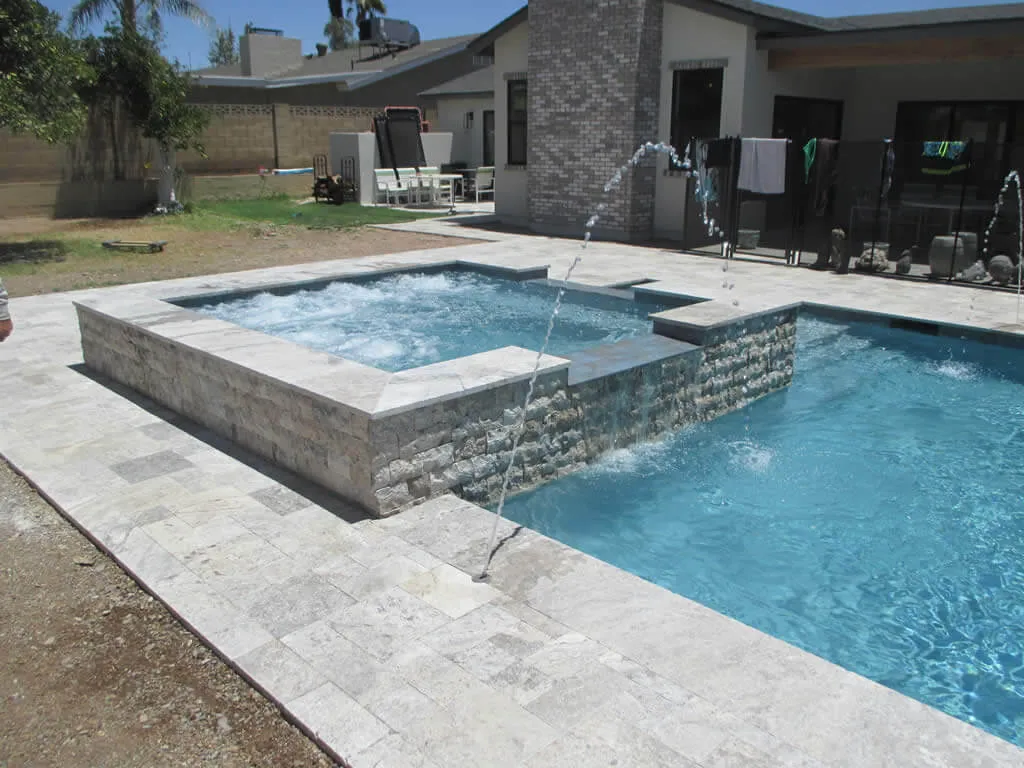
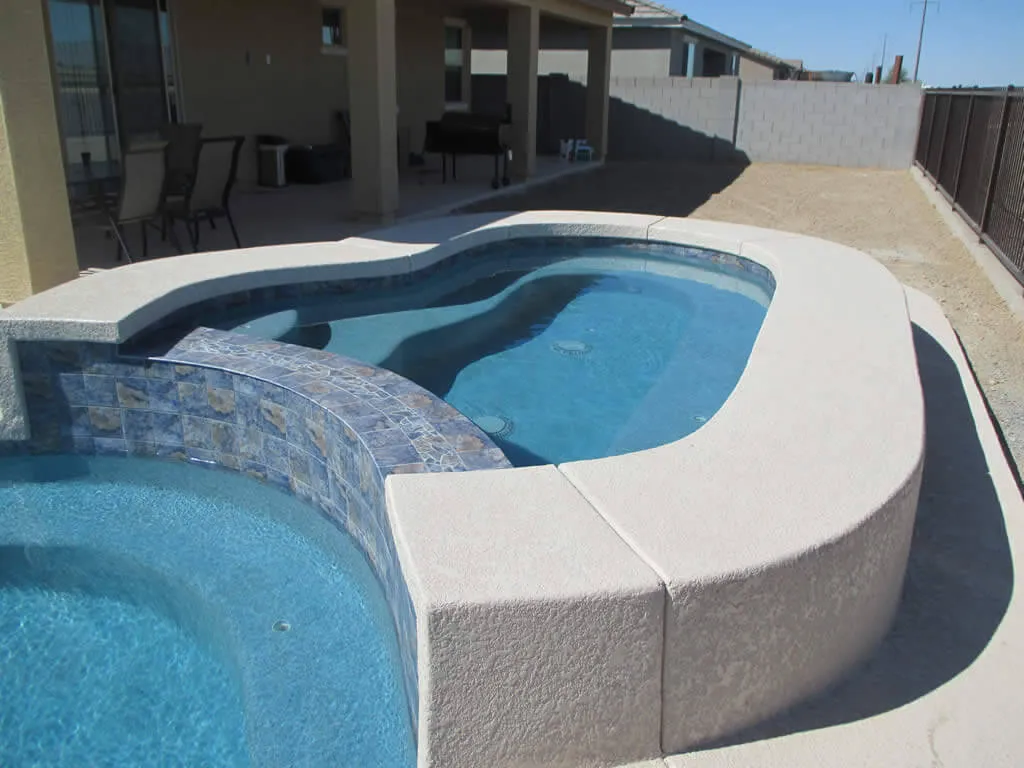
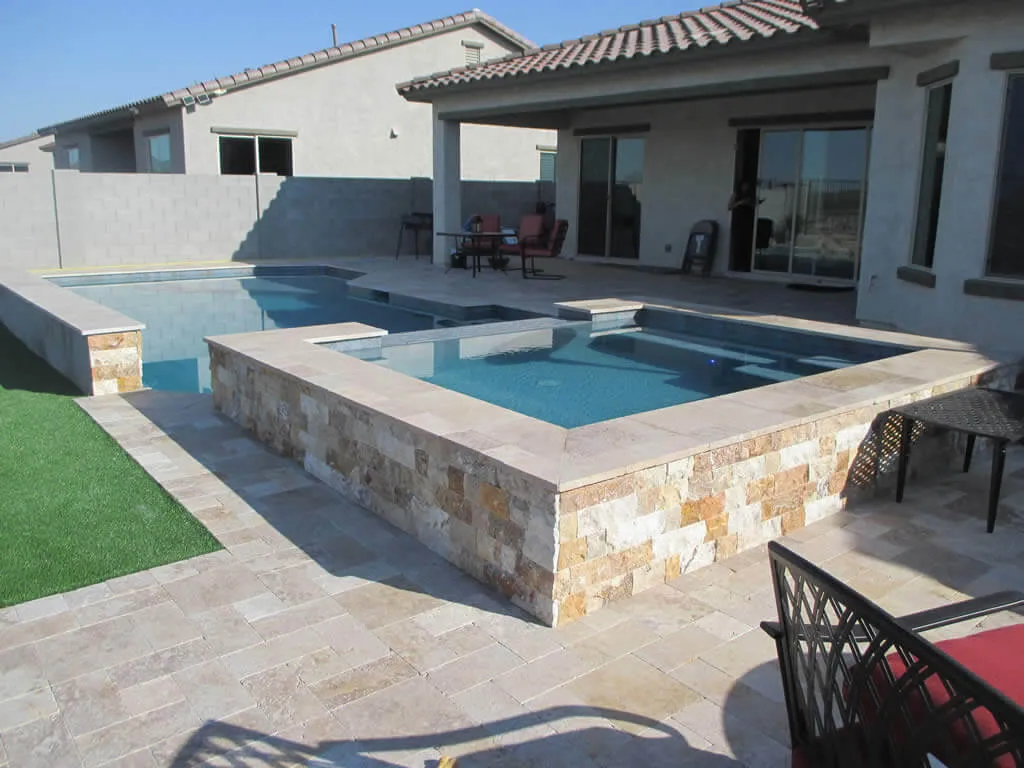
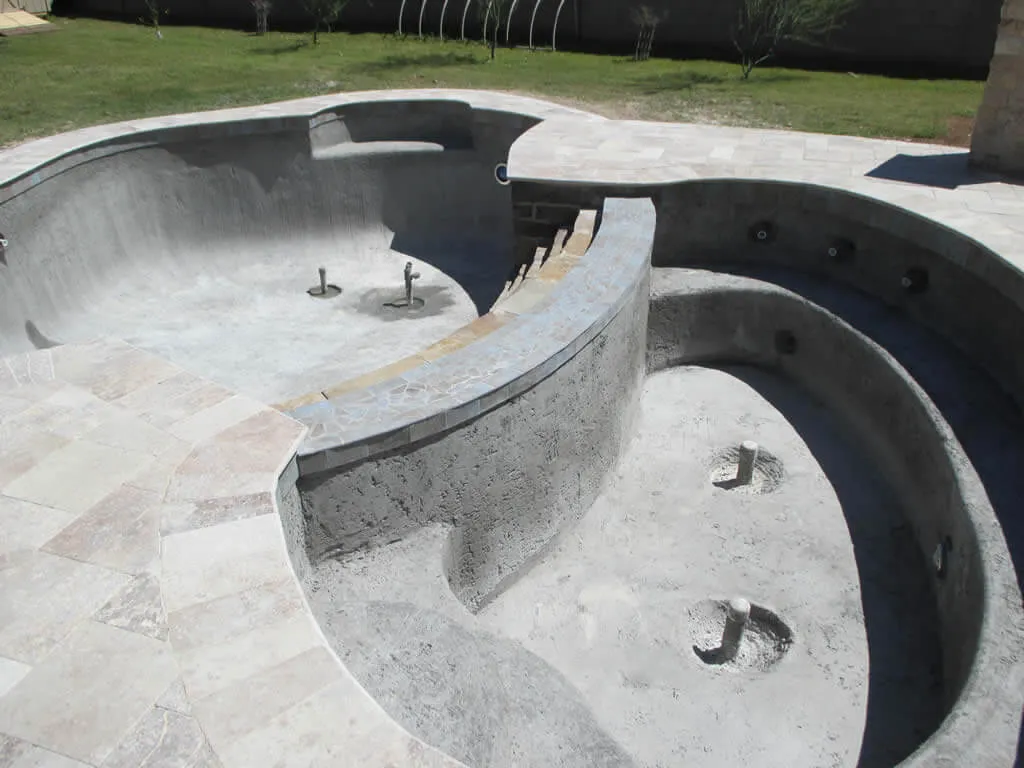
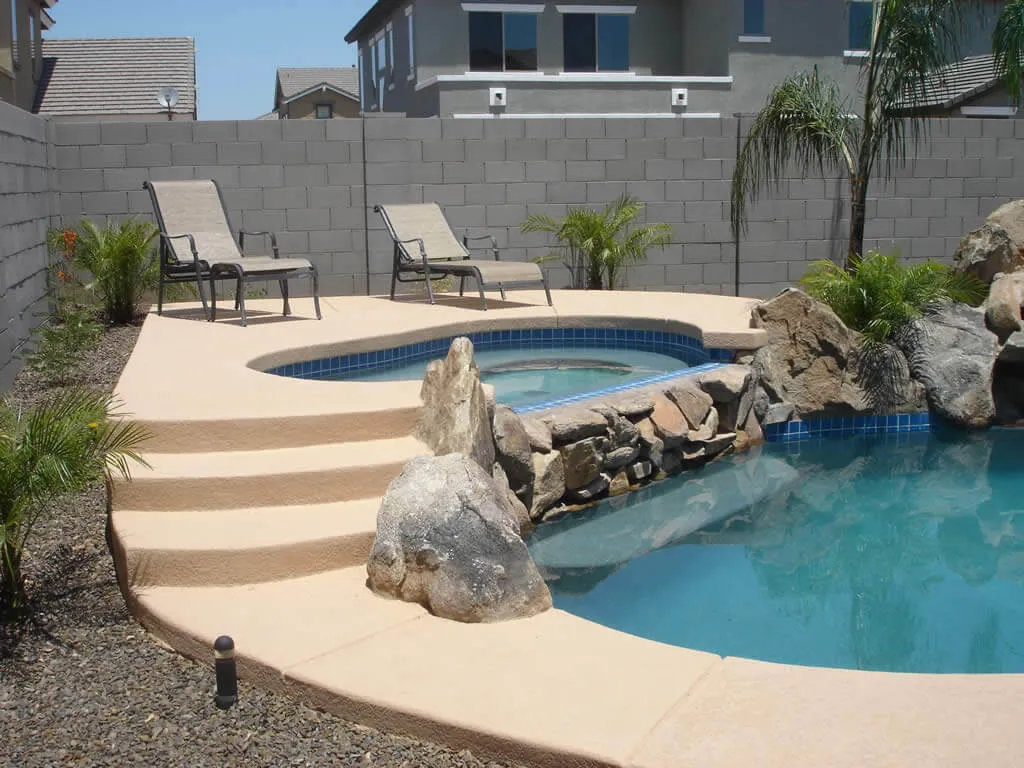
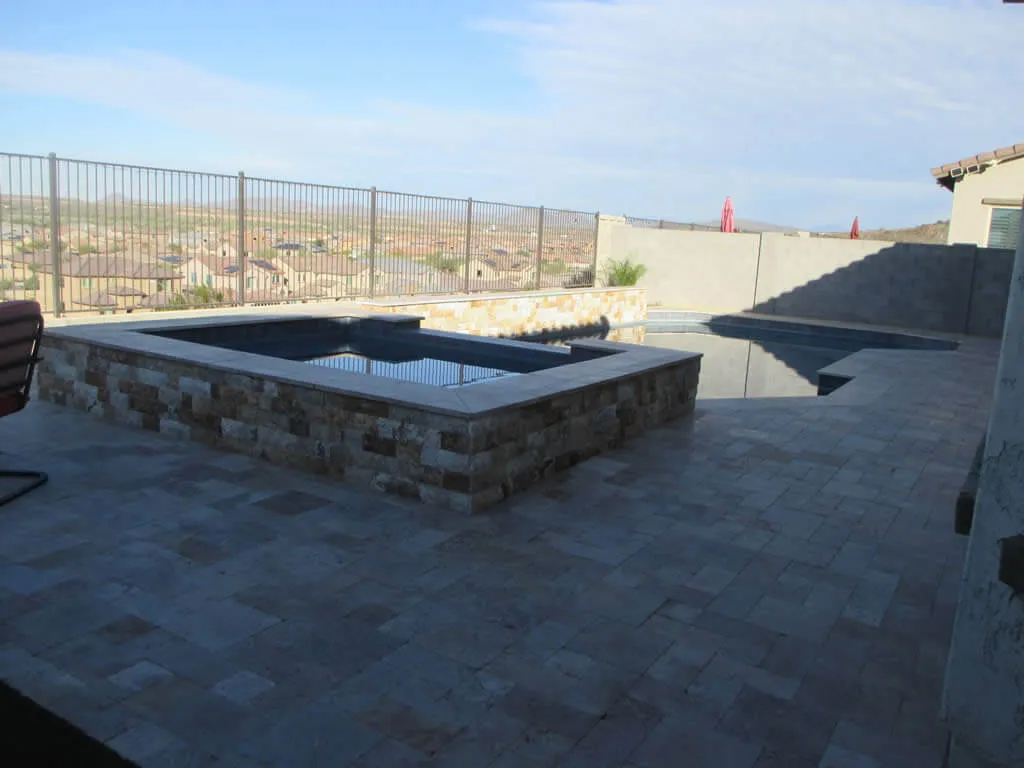
Concrete Inground Pools in Peoria, AZ: Understanding the Benefits
When you’re planning such a big investment, you need to look into the three primary pool types—concrete, vinyl liner, and fiberglass—to understand the differences. The primary advantage of concrete is that it’s highly customizable. Concrete pools give you the ability to customize the size, shape, or any other features. There are so many reasons to love concrete pools! They’re affordable, durable, easy to install and so much more.
Licensed & Insured:
AAABAR Pools | AZ LIC B-05 #205889
Call (623) 340-1422 | Email Us: aaabarpools@gmail.com
What is a concrete pool?
When planning your investment in a pool, it's essential to know the differences among the three primary types: concrete, vinyl liner, and fiberglass. Each has its distinct benefits, but concrete pools often stand out due to their durability and design flexibility. While cement often gets confused with concrete, it's actually just one component of it. Concrete is a composite material made from water, cement, sand, and a coarse aggregate like stone or gravel. This combination gives concrete its robust qualities, ideal for building lasting pool structures.
Creating the Pool Shell: Gunite vs. Shotcrete
A concrete pool shell is typically formed by spraying either gunite or shotcrete. Both methods are effective, though they differ slightly in application. Gunite involves a dry mix combined with water in the sprayer, while shotcrete is a pre-mixed wet material. When properly applied, both methods deliver equivalent quality and durability.
The Curing Process
Once the concrete is applied, it undergoes a process known as curing, where it hardens and strengthens over time. This important step isn’t about drying the material; instead, it strengthens the concrete to reach its full potential. For a pool shell, this curing process usually takes around 28 days, ensuring a strong and long-lasting foundation.
What are the pros and cons of owning a concrete pool?
The pros and cons boil down to this: concrete has significant advantages in terms of appearance. However, maintaining that appearance takes a lot of time, money, and personal effort.
Concrete Pool Advantages
- Customizable
- Durable
- Pretty
Customizable
The primary advantage of concrete is that it’s highly customizable. Concrete pools give you the ability to customize the size, shape, or any other features you may be looking for. It could be in the shape of a car if you want; that would be super expensive but potentially doable. I wouldn’t recommend it, though.
Durable
Concrete pools offer impressive durability, similar to fiberglass options. Unlike vinyl liners, you
don't need to worry about sharp objects damaging the pool structure. This makes concrete pools a great choice for pet owners, as dogs' nails won't harm the concrete surface.
It's important to note that while the concrete shell is highly durable, the plaster finish inside the pool requires periodic refinishing. This maintenance should be considered as part of the overall lifetime cost of owning a concrete pool.
Concrete Also Looks Good
Concrete pools also offer an appealing aesthetic. While "pretty" might not be the first word that comes to mind, concrete provides a timeless and classic pool appearance. Unlike liners, you
won't face issues with bubbling or separation. With proper maintenance, you can also minimize staining and algae, keeping your pool looking pristine.
Our extensive experience in pool construction extends beyond basic design. We are actively involved in every phase of construction, which enhances our expertise and fuels our passion for the craft. Our pride in workmanship ensures that we deliver exceptional results as dedicated and true pool builders.
Gunite Pools
Concrete pools are favored for their aesthetic appeal, design flexibility, and the potential to
enhance property value, accommodating features like waterfalls and spas. Their resilience and potential for customization make them a popular choice for homeowners seeking a personalized and enduring outdoor oasis.
Durable & Reliable
Gunite pools are renowned for their exceptional durability and longevity. Considered to be of the highest quality, they can be remodeled multiple times throughout their lifespan.
The Gunite Pool Construction Process
Gunite pools offer a robust and customizable solution, allowing you to tailor your pool exactly to your preferences. These pools are built using a blend of concrete, sand, and water, which is expertly sprayed onto a steel-reinforced frame. This method accommodates a wide range of shapes and sizes, resulting in a durable and long-lasting pool surface that stands the test of time.
In addition to our commitment to excellence, we pride ourselves on delivering exceptional customer service. We guide you through each step of the custom pool design and construction process, making it an enjoyable and stress-free experience. Trust AAABAR Swimming Pools to create a backyard paradise you’ll love for years to come.


Frequently Asked Questions
Q. What is a gunite pool?
A gunite pool is constructed using a mixture of sand, cement, and water. This blend is sprayed
onto the rebar framework through a hose system, creating a strong and stable pool base.
Q. How long does it take to build a gunite pool?
The time required to build a gunite pool can vary based on several factors, such as pool size, complexity, location, and time of year. To get an estimate for your specific project, contact one of our gunite pool specialists who can provide a detailed timeline.
Q. Why should I consider a gunite pool?
Gunite pools offer exceptional durability and versatility. The material allows for a wide range of shapes and designs, providing flexibility in size, depth, and features to match your preferences. Additionally, gunite pools resist cracks and structural issues better than other pool types, ensuring long-term stability.
Q. What is the difference between gunite and shotcrete?
The main difference between gunite and shotcrete is in their application. Shotcrete is a pre-mixed concrete that is applied wet, while gunite is a dry mix that combines with water only as it is sprayed from the hose.
Q. Can a gunite pool be used with saltwater?
Yes, gunite pools are compatible with saltwater systems, making them a safe and flexible choice for saltwater use.
Transform Your Pool with These Exciting Upgrades
Unlock endless possibilities for your backyard oasis. Contact us today to start designing your dream pool.
- Pool Coping: Revitalize your pool deck with new coping solutions. This essential edging not only enhances the look of your pool but also protects the pool shell and ensures a smooth transition to the deck. Explore a variety of coping styles to match your aesthetic.
- Pool Tile: Update the look of your pool by replacing cracked or outdated tiles. Available in a wide array of colors, textures, and shapes, our tiles can help you achieve a stunning and modern design.
- Pool Decking: Elevate your poolside retreat with diverse materials and styles beyond traditional concrete. With over 22 years of experience in the custom pool industry, we are dedicated to delivering outstanding service at a fair price, which has earned us a reputation for quality craftsmanship.
Freeform Pools
Freeform pools are the perfect tie-in to your nature-oriented landscaping. With the ability to fit perfectly into any space, these freeform swimming pools are not defined by straight lines or hard angles.
- Natural Design: Freeform pools seamlessly integrate with nature-oriented landscaping, enhancing the overall aesthetic appeal of the outdoor space.
- Flexible Shape: These pools can fit into various spaces, as they are not constrained by straight lines or hard angles, allowing for greater versatility in placement and layout.
- Lagoon-Style: Freeform pools often feature a lagoon-style or natural design, resembling a picturesque oasis with organic shapes and flowing contours.
Geometric Pools
Enhance your backyard with geometric pools, known for their sharp lines and defined edges. These pools seamlessly complement modern architecture while providing a versatile space for
both leisure and activities.
- Modern Architecture: Geometric pools perfectly match modern architectural styles, creating a cohesive and visually striking environment with their distinct lines and defined edges.
- Multi-Functional Design: These pools serve as versatile spaces, ideal for both lifestyle enjoyment and recreational activities, offering a practical solution for homeowners.
- Open Spaces: Geometric pools are well-suited for large, open spaces, standing out as captivating focal points while still providing ample room for family fun and relaxation.
Classic Pools
Give your yard a touch of timeless elegance with classic swimming pools that evoke the grandeur of Roman architecture.
- Roman Architecture: Classic pools capture the essence of Roman design, incorporating elements that reflect ancient aesthetics.
- Defined Lines: Featuring distinct lines and geometric shapes with round, clean edges, these pools add an air of sophistication and refinement.
- Complement Classic Homes: They seamlessly enhance the architectural appeal of traditional homes, crafting a harmonious outdoor space.
Small Pools
For those with limited space, small pools, or "spools," offer a compact yet luxurious swimming experience, combining the benefits of a traditional pool with those of a spa.
- Save Space: Perfect for areas with limited room, spools are a favorite for vacation homes and locations where space is at a premium.
- Reduced Costs: Smaller pools are a cost-effective option, allowing you to allocate savings toward water features, a pool cover, or ongoing maintenance without sacrificing quality.
- Lower Maintenance: With less debris accumulation, small pools require less upkeep. A manual vacuum and scoop net are usually sufficient for keeping the pool clean.
What is the average cost of a concrete pool?
A concrete pool can cost $85,000 – $200,000 depending on the region, but it’s not uncommon for them to cost more, especially with additional landscaping and accessories. 85326, 85396 Maintenance across the life of the pool usually adds $20,000 or more on top of this initial cost. These details make up the initial and lifetime cost of ownership for a concrete pool.
Reviews from Our Clients
Trustindex verifies that the original source of the review is Google. There were some challenges in building my pool. But in the end it all worked out and I am happy with my pool. Dave did the design and recommended a very fun slide.Posted onTrustindex verifies that the original source of the review is Google. We are so happy with our pool. Dave was amazing to work with and kept us informed every step of the way. Our pool is even better than expected. A year after our pool was completed we were having trouble with our pool service. Dave took time out of his day to help us out. I can’t say enough good things.Posted onTrustindex verifies that the original source of the review is Google. It's been a pleasure to work with David and communication is on point! Thank you for helping us build our pool. This summer is going to be great 👍Posted onTrustindex verifies that the original source of the review is Google. I had AAABAR put in my pool over a year ago and I still love it. We’ve had no issues at all. The pool stays beautiful year long. Dave was on site at every stage during the build to make sure all work was completed correctly. I highly recommend AAABAR pools if you are wanting a nice, well built pool.Posted onTrustindex verifies that the original source of the review is Google. Dave built us a GREAT pool. After getting 2 previous quotes and waiting for the pricing, we met with AAABar pools and had a quote that same day. Construction happened quickly and professionally. Additionally every subcontractor that came into our backyard was exceptional, taking the time to explain the process and answer any questions. We now have a Beautiful pool and would HIGHLY recommend AAABar Swimming Pools.Posted onTrustindex verifies that the original source of the review is Google. My husband and I interviewed multiple swimming pool companies and selected Dave Barrett's company AAABAR Swimming Pools and definitely made the best choice. Dave builds a beautiful pool and is a pleasure to work with. He arrived at our home with everything that he needed. We talked through everything that we wanted, things that we didn't want, and he drew it out a design for us. Not only did he draw it out, he gave us the quote the same day and printed it on his travel printer before leaving our home. Needless to say, we were pretty impressed. He was the only pool company that gave us a quote in the same visit. We feel that other companies have unnecessary overhead and design centers that you pay for. Within a couple of weeks, the hole had been dug and things began without delay. It was a pleasure to work with his crew who were nothing more than professional and top-notch workers. We would highly recommend AAABAR Swimming Pools if you're looking for a fair priced, well-designed, well-crafted pool.Posted onTrustindex verifies that the original source of the review is Google. We recently purchased our first new build home and the backyard was basically a dirt lot so we had a clean slate for building our dream yard. We didn’t know how we wanted the yard except we knew we wanted a pool, spa, kitchen and fire pit. We scheduled three different quotes with AAABAR being the final quote. Dave was great. He listened to what we wanted and quickly put together a design with all of our wants. The final results exceeded our expectations. Unlike the two previous quotes, AAABar was able to do the entire backyard. The quality of the work is amazing. We never imagined we would have the back yard of our dreams but AAABar made it possible.Posted onTrustindex verifies that the original source of the review is Google. First of all this was the first pool my wife and I have ever built. Dave came in and designed a pool to our specs. Roughly took a total of 7 weeks to build. I’m giving him 5 stars due to the fact we got a good product and he has stood behind it. Had a leak in the auto fill line. Dave has been there to take care of the repair to get it back up and fixed. Something like this is to no fault of his but he paid for the repair without a fight standing behind the workmanship. Through the whole process his subcontractors were very good and thoughtful toward us. If you want a good pool and a quick turnaround use Dave. We would use his company again.Posted onTrustindex verifies that the original source of the review is Google. I cannot recommend AAABAR Pools and the owner of the company Dave Barrett enough! He estimated a time frame of 3-4 months but actually finished the job in roughly 6 weeks! Just AMAZING! Very pleasant, knowledgeable, efficient and has a great team! ! 5 STARS all day for me! Highly recommended on every level! Thanks so much AABAR Pools! 👏👏👏🙌
Explore What We Do
Have Any Questions? Our experienced staff is always happy to help. Give us a call or fill out the form below.
Licensed & Insured:
AAABAR Pools | AZ LIC B-05 #205889
Call (623) 340-1422 | Email Us: aaabarpools@gmail.com
